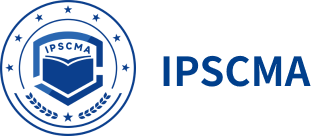In today's complex and volatile global economy, supply chain resilience has become a key pillar for the sustainable development of enterprises. As the wave of digital transformation sweeps the world, the traditional procurement management and supplier relationship is undergoing unprecedented changes. According to Deloitte's 2023 Global Supply Chain Survey, more than 78% of enterprises are accelerating their supply chain digital transformation initiatives. In the post-pandemic era, enterprises have paid more attention to supply chain resilience management, which is not only reflected in technological upgrades, but also extends to the innovative practice of supplier collaborative management.
Digital transformation has become the main theme in the field of supply chain management. According to the latest research by Accenture Consulting, the global supply chain management software market size is expected to reach $28 billion by 2025, with a compound annual growth rate of 14.6%. Under this trend, the application scope of intelligent procurement platform continues to expand, from demand forecasting to supplier evaluation to contract management, all of which have been intelligently upgraded.
It is worth noting that blockchain technology is playing an increasingly important role in improving supply chain transparency. According to the IBM Supply Chain Research Institute, companies that adopt blockchain solutions can reduce supply chain traceability time by about 65% while reducing operating costs by more than 20%. This technological innovation not only improves the visibility of the supply chain, but also provides new possibilities for supplier collaborative management.
In the traditional supplier management model, price is often the primary indicator of evaluation. However, supply chain disruptions in recent years have made companies realize that building strategic supplier partnerships is far more important than mere cost considerations. According to McKinsey's 2023 Supply Chain Report, companies with strategic supplier partnerships recover 40% faster than others in the face of supply chain disruptions.
Supplier collaborative innovation has become a new engine for enterprises to improve their competitiveness. For example, a leading global electronics manufacturer has generated more than 200 innovation patents in the past two years, bringing in incremental revenue of approximately $400 million by establishing a Supplier Innovation Lab to co-develop new technologies and solutions with core suppliers.
Risk Management and Supply Chain Resilience
Supply chain risk management in the post-pandemic era has taken on new characteristics. According to PwC, 85% of companies are implementing supplier diversification strategies to reduce dependence on a single region or supplier. At the same time, companies are paying more and more attention to the ESG performance of suppliers, and taking sustainability as an important dimension of supplier evaluation.
The application of intelligent risk early warning system is changing the traditional risk management model. By analyzing suppliers' financial data, market dynamics, and public opinion information through AI algorithms, companies can identify potential risks in advance and take preventive measures. An automaker successfully predicted and avoided three major supply disruptions by deploying an intelligent risk warning system, recovering more than $80 million in potential losses.
Looking to the future, procurement and supplier management will be more intelligent and collaborative. The in-depth application of new technologies such as 5G and the Internet of Things will promote the collaborative efficiency of the supply chain to a new level. Gartner predicts that by 2025, more than 60% of manufacturing companies will have established AI-based supplier collaboration platforms. At the same time, the concept of sustainable development will be further integrated into supply chain management practices. Driven by the goal of carbon neutrality, the construction of green supply chain will become a must for enterprises. Research shows that by 2030, the global green supply chain market is expected to exceed $300 billion.
For enterprises, it is necessary to promote the upgrading of procurement and supplier management step by step. First of all, we should start to establish a digital procurement platform to standardize business processes. secondly, focus on the development of strategic supplier partnerships and establish innovative synergy mechanisms; Finally, we will continue to improve our risk management system and enhance the resilience of our supply chain. In the specific implementation process, enterprises can learn from the concept of "agile procurement" and promote change through small-scale pilots and rapid iterations. Research shows that procurement transformation projects that adopt agile methodologies have a success rate of about 35% higher than traditional methods.
